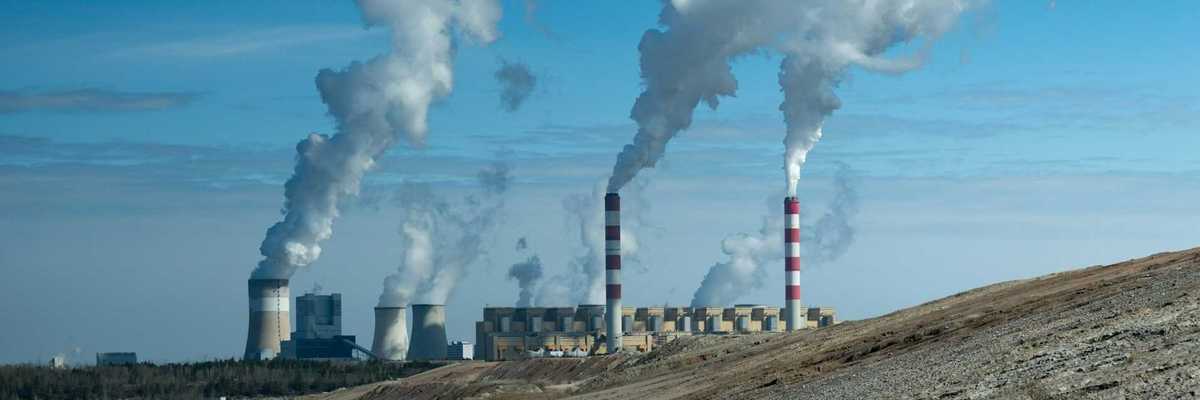amoc
Scientists see some risks of catastrophic climate events as lower but still concerning
Recent studies suggest that some worst-case climate scenarios, like the collapse of the Thwaites Glacier in Antarctica, are less likely than previously thought, though other threats like the collapse of the AMOC remain serious concerns.
In short:
- The Thwaites Glacier, also known as the "Doomsday Glacier," is still melting, but its rapid collapse is less likely within this century.
- Greenland's ice sheet is melting faster than expected, but it may be more resilient if global temperatures are controlled.
- Scientists continue to study the Atlantic Meridional Overturning Circulation (AMOC), which could collapse by 2050, leading to significant climate disruptions.
Key quote:
"Unfortunately, Thwaites Glacier is still going to retreat and with it most of the West Antarctic ice sheet, but not as rapidly as one scenario suggested."
— Mathieu Morlighem, professor of earth sciences, Dartmouth University
Why this matters:
Rising sea levels, driven by ice sheet melt and ocean circulation changes, threaten coastal cities and could lead to widespread displacement and severe weather changes. These scenarios remain potential global challenges despite some recent optimism.
Scientists predict collapse of key Atlantic Ocean current by 2057
Two Danish researchers, Peter and Susanne Ditlevsen, forecast the Atlantic Meridional Overturning Circulation may collapse as early as 2057, raising concerns about severe global climate impacts.
In short:
- The AMOC, a crucial ocean current system, could collapse by 2057, significantly altering global climate patterns.
- The Ditlevsens' study indicates the AMOC is weakening due to rising temperatures and increased freshwater input from melting ice.
- A collapse could lead to harsher winters in Europe, rising sea levels and severe disruptions in global weather patterns and agriculture.
Key quote:
“We were completely overwhelmed by all the media attention, and then of course from all the weirdos.”
— Susanne Ditlevsen, statistics professor
Why this matters:
The potential collapse of the AMOC could trigger drastic changes in weather, agriculture and sea levels, impacting billions of people worldwide.
Related EHN coverage:
Rising ocean temperatures signal potential global disruptions
As oceans warm at unprecedented rates, experts fear widespread ecological impacts.
Katrin Bennhold, David Gelles and Raymond Zhong report for The New York Times.
- Ocean temperatures are rising sharply, with a significant jump observed from March 2023, posing increased risks to marine life and ecosystems.
- Recent shipping emission regulations have inadvertently contributed to ocean warming by reducing sulfur dioxide that helped reflect sunlight.
- Scientists are alarmed by the rapid ocean warming, which has led to widespread coral bleaching affecting global fisheries.
Key quote:
"We're seeing changes in ocean temperatures that none of the climate models can explain."
— David Gelles, journalist
Why this matters:
The health of our oceans is closely tied to overall environmental stability and human health, influencing everything from weather patterns to global biodiversity. Read more: Surprise! Unexpected ocean heat waves are becoming the norm.
Facing a cold shock: How melting ice could alter global climates and raise sea levels
A recent study raises alarms about the potential catastrophic effects of climate change on the Atlantic Ocean's temperature and ecosystems.
In short:
- A scientific paper warns that melting ice could lead to a significant drop in temperatures in parts of Europe, alongside other global climate effects.
- The Atlantic Meridional Overturning Circulation (AMOC), crucial for regulating global climate, faces the risk of a "death spiral" due to freshwater influx.
- This scenario, while uncertain, underlines the need for immediate climate action to prevent possible drastic changes.
Key quote:
“The trickiest part about modeling this is the whole system is very dependent on how the ocean and the atmosphere interact with each other.”
— Till Wagner, atmospheric and ocean scientist at the University of Wisconsin-Madison
Why this matters:
Warmer waters can disrupt the habitats of many marine species, leading to shifts in species distributions as fish and marine mammals migrate to cooler areas. This can impact food webs and the livelihoods of communities dependent on fishing.
Ocean heat waves, which can push out fish, plankton and other aquatic life, are happening far more frequently than previously thought.
Climate simulation raises alarm over potential ocean circulation collapse
A recent study by René van Westen showcases how melting Arctic freshwater could disrupt the Atlantic Ocean's circulation, potentially leading to abrupt climate changes.
In short:
- The Atlantic Meridional Overturning Circulation (AMOC), crucial for regulating climate and weather patterns, may be nearing a critical "tipping point" due to increased freshwater from melting ice.
- Historical data and advanced simulations indicate the AMOC has shut down before, with significant global climate implications.
- Recent observations suggest the AMOC is weakening, raising concerns about its stability and the rapid, severe consequences of its potential collapse.
Key quote:
“In simple terms [it] would be a combined food and water security crisis on a global scale.”
— Tim Lenton, climate scientist at the University of Exeter
Why this matters:
Understanding and monitoring the AMOC's stability is vital for predicting future climate changes. A collapse could drastically alter weather patterns, affect global food and water security, and challenge our ability to adapt. Solutions exist but competing interests slow implementation.









